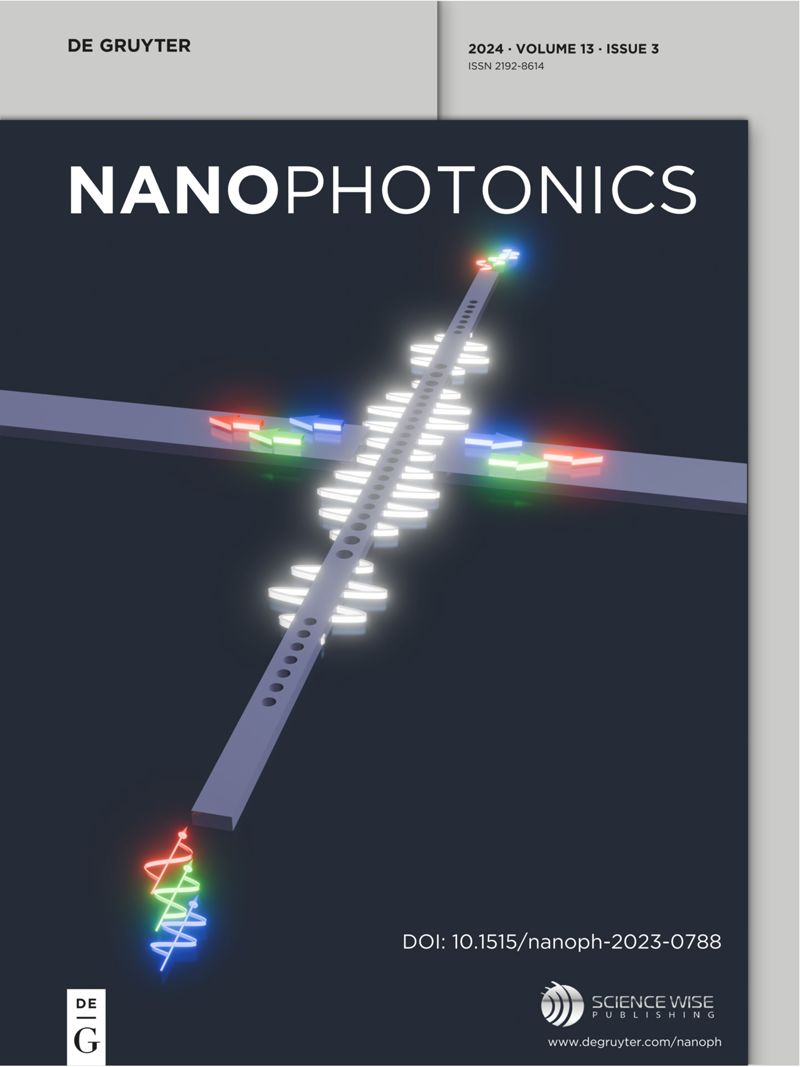Constant-force photonic projectile for long-distance targeting delivery
IF 6.5
2区 物理与天体物理
Q1 MATERIALS SCIENCE, MULTIDISCIPLINARY
引用次数: 0
Abstract
Optically controllable delivery of microparticles excites interesting research and applications in various fields because of the noninvasive and noncontact features. However, long-distance delivery with a static low-power light source remains challenging. Here, the constant-force photonic projectile (CFPP) is employed to achieve long-distance delivery of microparticles with a low-power laser beam. The CFPP takes advantage of photon absorption to create a constant optical force within a large range, surpassing traditional tweezers. The concept of CFPP has been experimentally corroborated by remote control over micrometer-sized absorptive particles (APs) using a simple tilted focused beam. At the laser focus, strong photon absorption results in a large constant optical force that ejects the APs along the optical axis. Furthermore, the additional thermal convection field, which attracts particles from a distance into the working range of the CFPP, is utilized to collect the unbound APs for reuse. Finally, we demonstrate the concept of drug delivery by transporting a small microparticle onto a host particle at a remote location. The proposed CFPP provides a new perspective for drug delivery and heat-enhanced photodynamic therapy.用于远距离目标投放的恒力光子弹丸
光学可控微粒子传输具有非侵入性和非接触性的特点,因此在各个领域都有有趣的研究和应用。然而,利用静态低功耗光源实现远距离传输仍具有挑战性。在这里,恒力光子射弹(CFPP)被用来用低功率激光束实现微粒子的长距离传输。CFPP 利用光子吸收的优势,在大范围内产生恒定的光力,超越了传统的镊子。通过使用简单的倾斜聚焦光束对微米大小的吸收粒子(AP)进行远程控制,实验证实了 CFPP 的概念。在激光焦点处,强烈的光子吸收会产生巨大的恒定光学力,将吸收粒子沿光轴弹出。此外,额外的热对流场可将颗粒从远处吸引到 CFPP 的工作范围内,从而收集未结合的 APs 以供再利用。最后,我们展示了通过将小微粒传输到远处的宿主微粒上进行药物传输的概念。所提出的 CFPP 为药物输送和热增强光动力疗法提供了一个新的视角。
本文章由计算机程序翻译,如有差异,请以英文原文为准。
求助全文
约1分钟内获得全文
求助全文
来源期刊

Nanophotonics
NANOSCIENCE & NANOTECHNOLOGY-MATERIALS SCIENCE, MULTIDISCIPLINARY
CiteScore
13.50
自引率
6.70%
发文量
358
审稿时长
7 weeks
期刊介绍:
Nanophotonics, published in collaboration with Sciencewise, is a prestigious journal that showcases recent international research results, notable advancements in the field, and innovative applications. It is regarded as one of the leading publications in the realm of nanophotonics and encompasses a range of article types including research articles, selectively invited reviews, letters, and perspectives.
The journal specifically delves into the study of photon interaction with nano-structures, such as carbon nano-tubes, nano metal particles, nano crystals, semiconductor nano dots, photonic crystals, tissue, and DNA. It offers comprehensive coverage of the most up-to-date discoveries, making it an essential resource for physicists, engineers, and material scientists.
 求助内容:
求助内容: 应助结果提醒方式:
应助结果提醒方式:


